In today's fast-paced world, finding the right work-life balance can often feel like a daunting task. More and more employees are seeking flexible work hours to accommodate personal commitments and boost productivity. If you're considering making the shift to a more adaptable schedule, you're not alone! Dive into our guide to learn how to effectively request flexible work hours and take the first step towards a more harmonious work-life balance.

Subject Line
Flexible work hours request for improved productivity and work-life balance.
Introduction
In today's dynamic work environment, many professionals seek to balance personal commitments and work responsibilities effectively. The request for flexible work hours often stems from the desire to enhance productivity while accommodating family needs, health-related concerns, or educational pursuits. Studies indicate that companies adopting flexible work arrangements witness improved employee morale, reduced turnover rates, and overall enhanced workplace satisfaction. Such arrangements, which may include options like remote work or adjustable start and end times, align with contemporary trends emphasizing work-life balance. Emphasizing communication with management about individual circumstances can lead to mutually beneficial outcomes for both employees and organizations.
Reason for Request
An increasing number of professionals are seeking flexible work hours due to varying personal circumstances and the need for work-life balance. Many employees, particularly parents or caregivers, find that traditional 9-to-5 schedules do not accommodate their responsibilities at home or in their personal lives. By requesting flexible work hours, individuals can better manage their time and productivity, resulting in lower stress levels and enhanced job performance. Companies that support flexible schedules often experience increased employee satisfaction and retention rates, fostering a positive workplace culture while addressing the needs of their workforce.
Proposed Work Schedule
Flexible work hours can significantly enhance employee productivity and work-life balance. A proposed work schedule might include modifications such as starting the workday at 10 AM instead of the usual 9 AM, allowing for an additional hour of rest after commuting in busy urban areas like New York City, where public transport challenges are common. Additionally, a shift in the ending time to 6 PM instead of 5 PM could facilitate attending personal commitments, such as picking up children from after-school activities in local neighborhoods. This adjustment aims to reduce stress from rigid timelines while maintaining project deadlines and collaboration with team members. Overall, adopting a flexible schedule fosters a healthier workplace culture.
Benefits to the Organization
Implementing flexible work hours can enhance employee productivity significantly, with studies indicating a 20-25% increase in output among remote workers. Companies such as Deloitte, which adopted flexible work schedules, reported improved employee satisfaction scores, leading to higher retention rates. Additionally, flexible hours allow organizations to tap into a broader talent pool, including remote workers from different time zones, thus maximizing workforce availability. This adaptability promotes a healthier work-life balance, reducing burnout and absenteeism, ultimately fostering a more engaged and motivated workforce. Furthermore, organizations can benefit from decreased overhead costs associated with maintaining physical office spaces during off-peak hours.
Letter Template For Requesting Flexible Work Hours Samples
Letter template of request for flexible work schedule due to personal commitments.
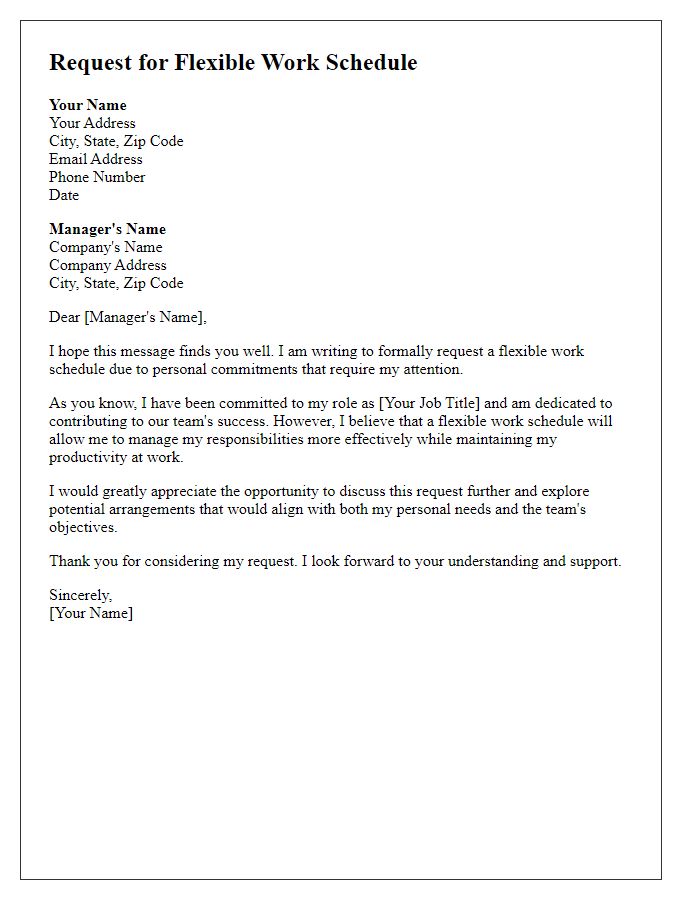
Letter template of appeal for adjustable working hours for enhanced productivity.
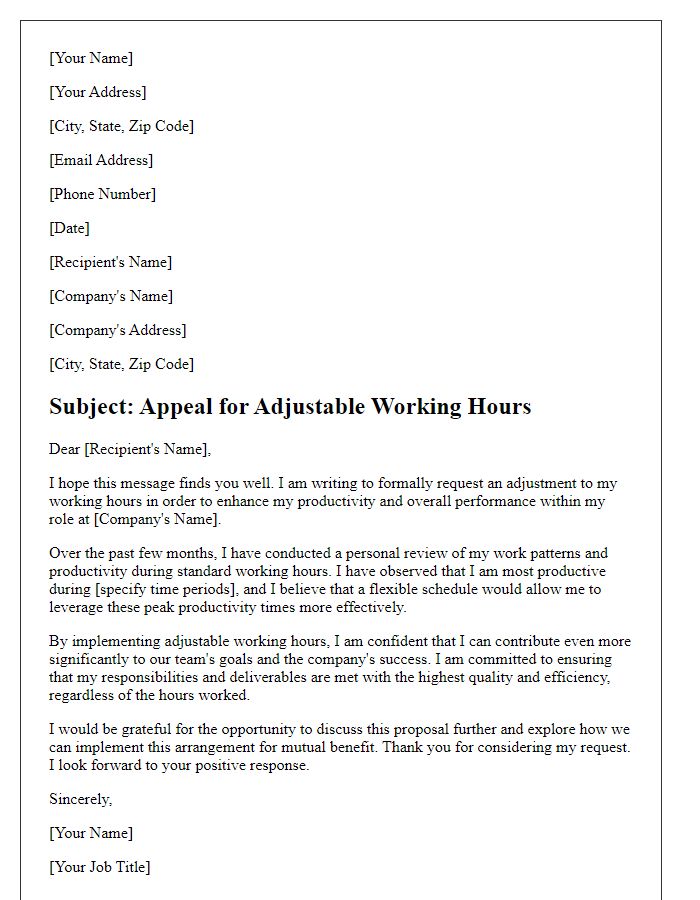
Letter template of inquiry for modified working hours for better work-life balance.
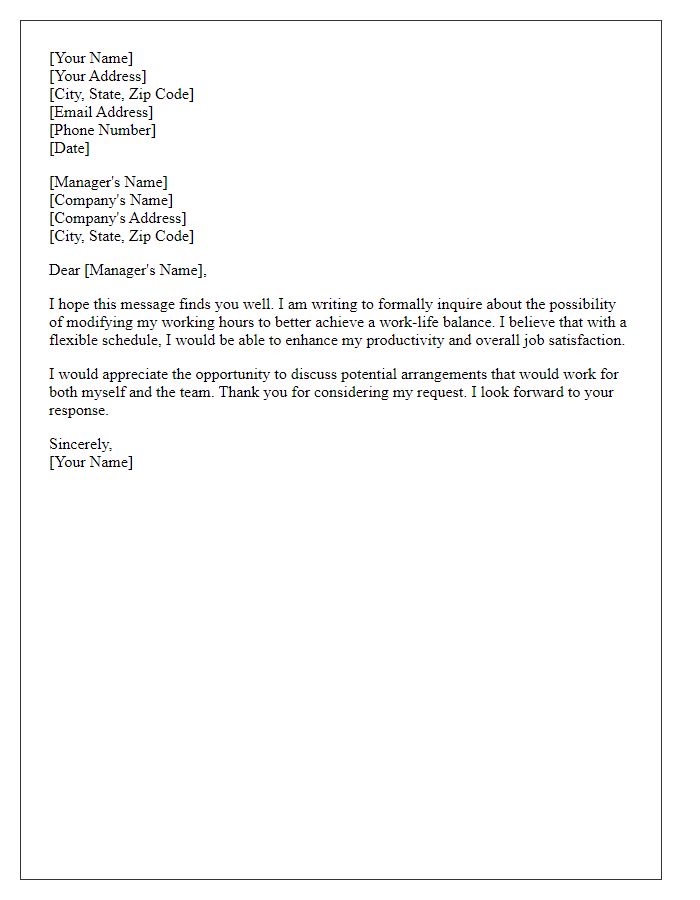
Letter template of proposal for flexible work arrangements to accommodate family needs.
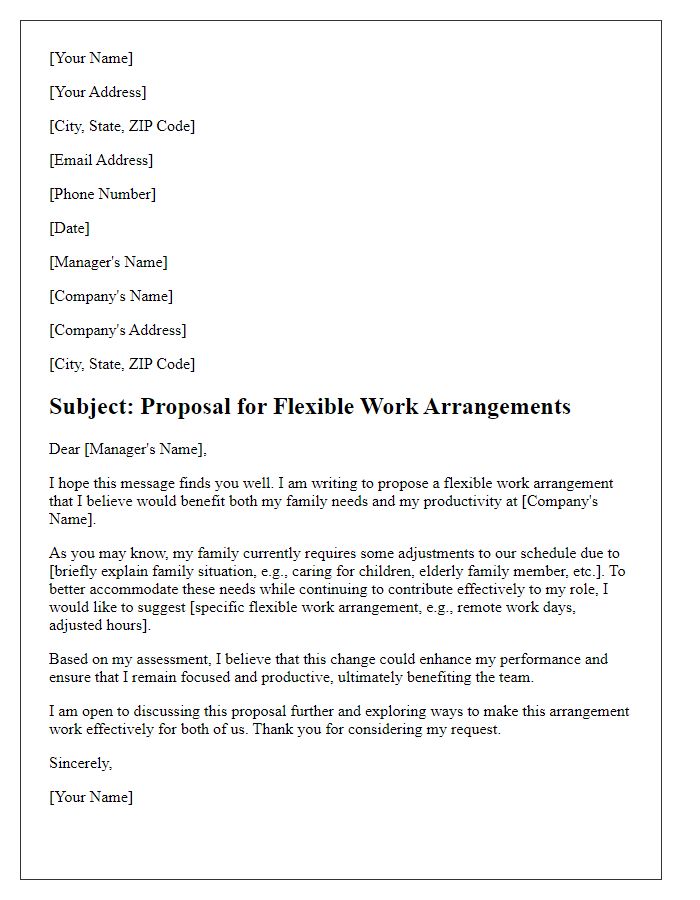
Letter template of solicitation for part-time hours to pursue further education.
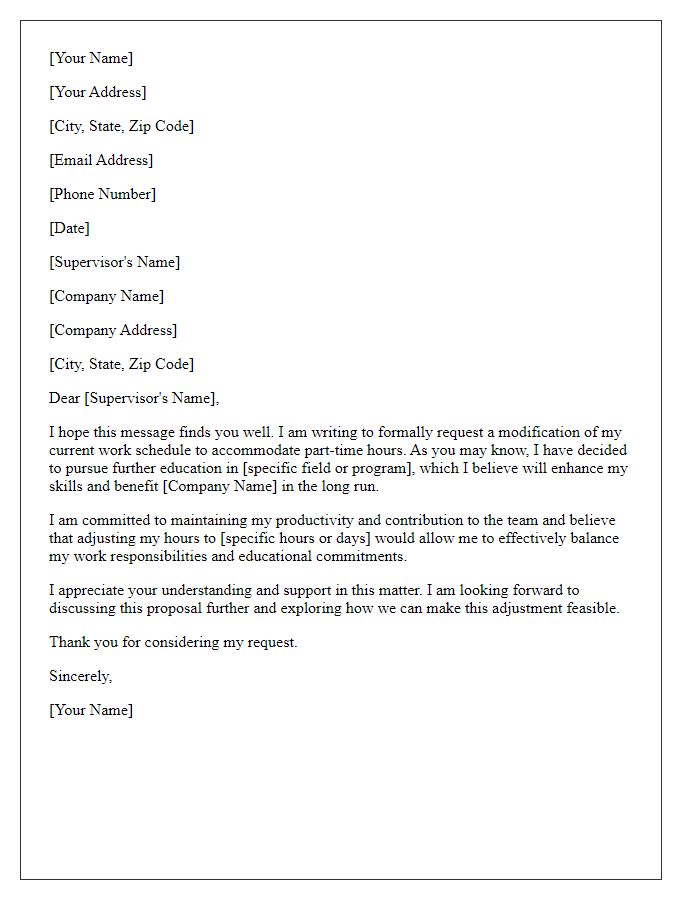
Letter template of request for remote work options alongside flexible hours.
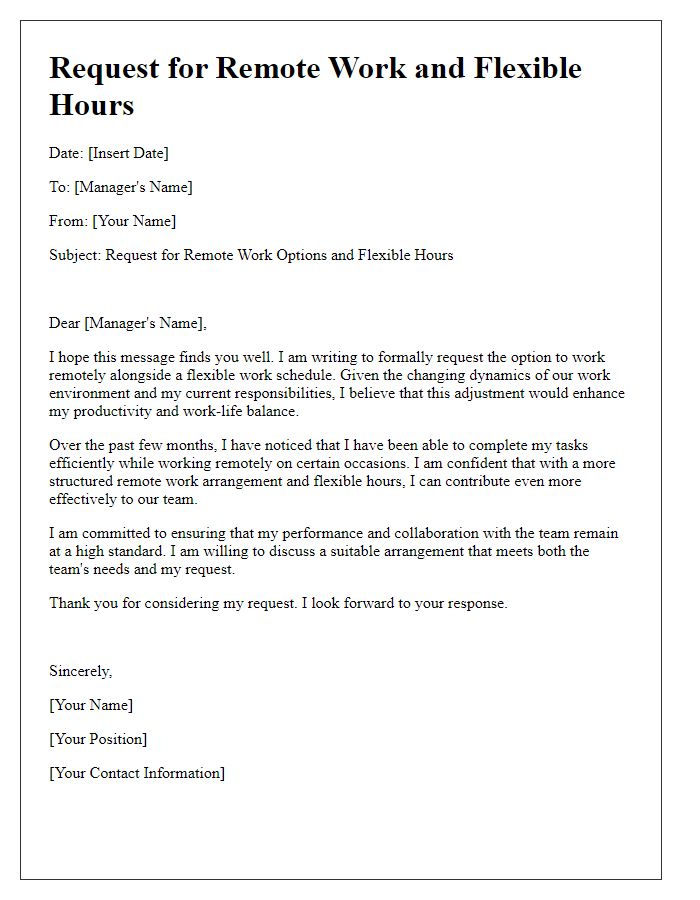
Letter template of expression for changing work hours to aid health-related issues.
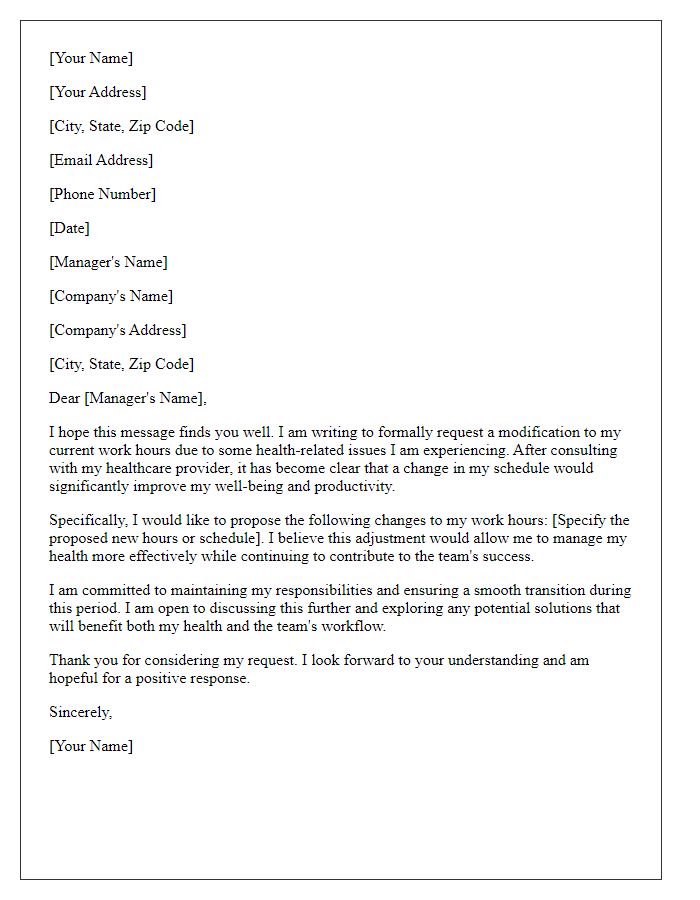
Letter template of suggestion for staggered shifts to support team collaboration.
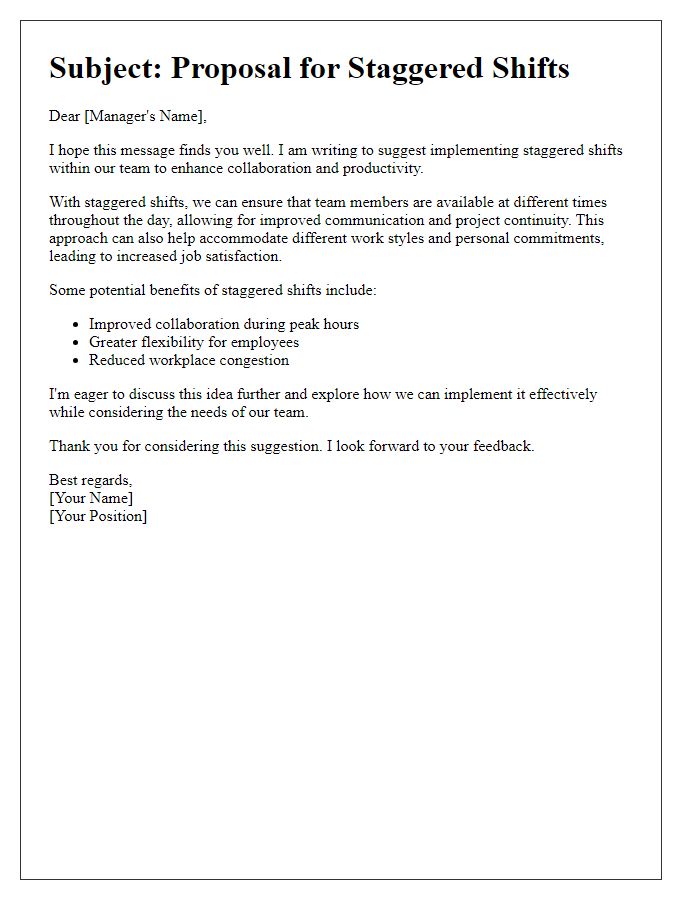
Letter template of demand for flexible timing to manage childcare responsibilities.
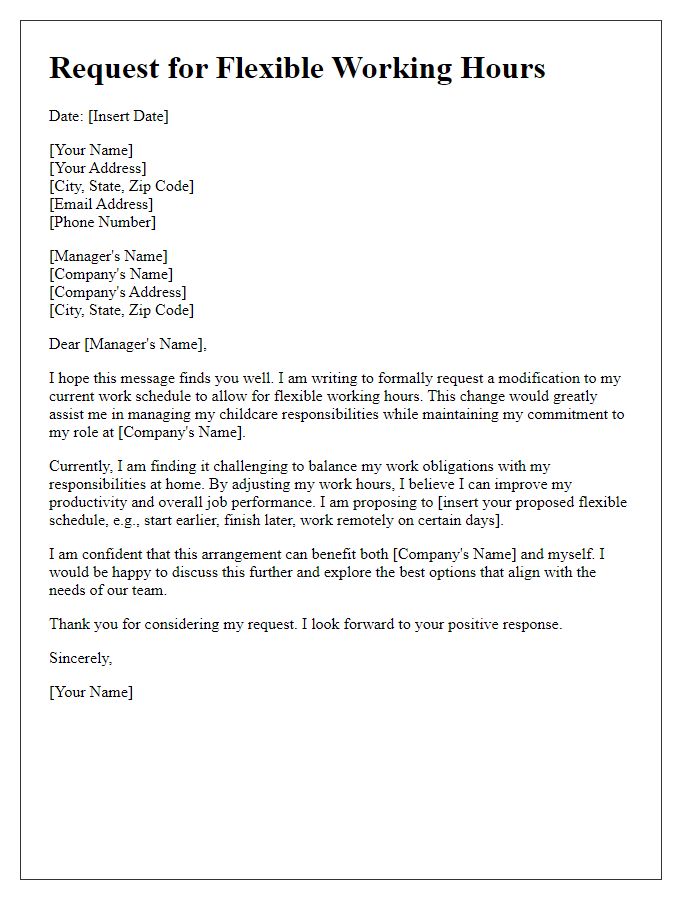

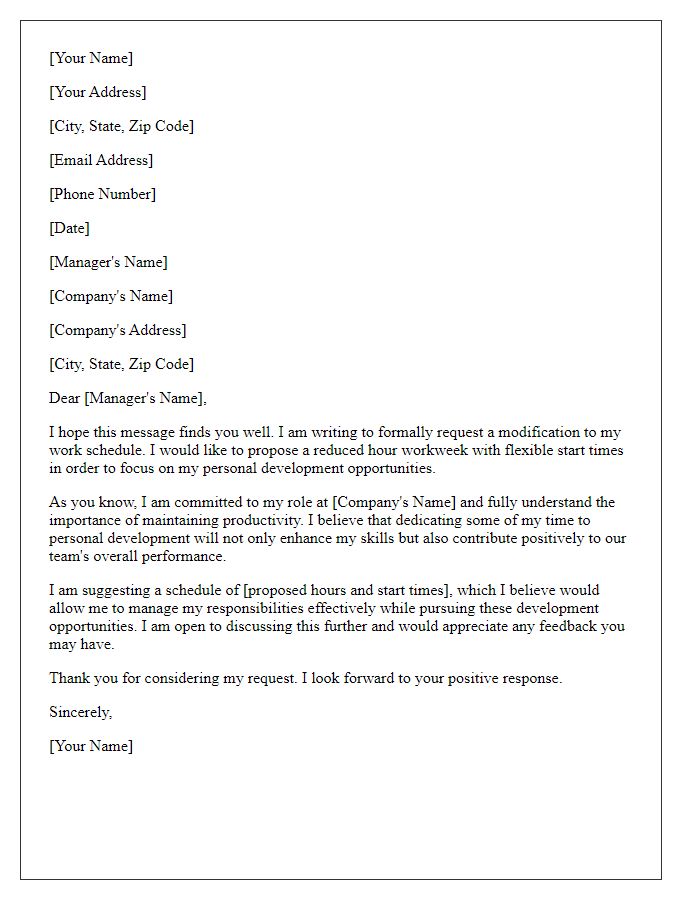


Comments